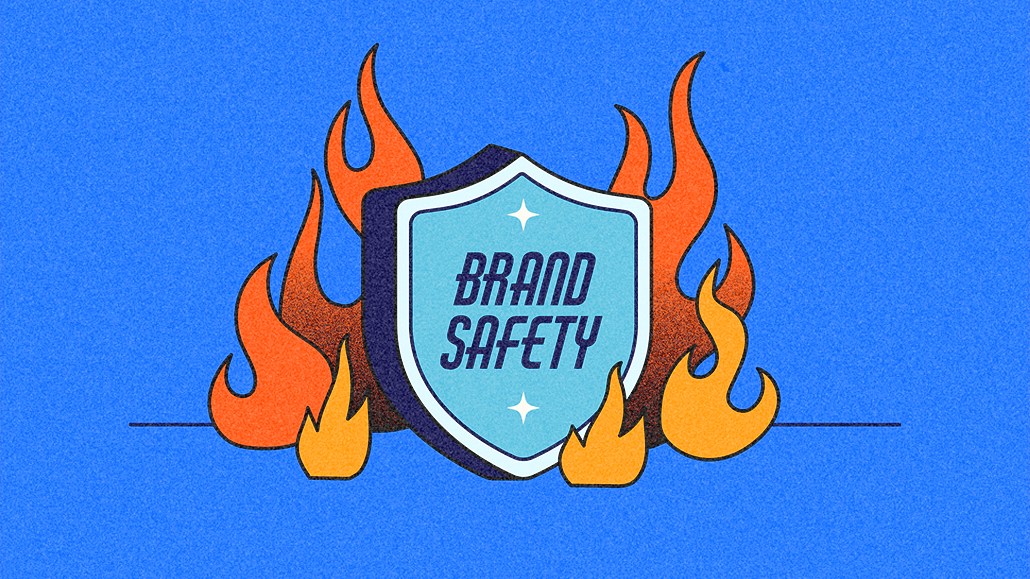Secure your place at the Digiday Media Buying Summit in Nashville, March 2-4
Never heard of Adfidence? You might soon if you have brand safety concerns

If there’s one major frustration some in the marketing and media world love to talk about — but really don’t do much about — it’s solving the problems of brand safety and fraud avoidance.
From the pages of the ANA’s recent report on programmatic fraud and waste to the Palais mainstage in Cannes, marketers and agency execs bemoan the waste and lack of surety in what they’re investing their marketing dollars across the digital landscape.
Ad-tech/mar-tech startup Adfidence says it’s out to give marketers’ in-house teams and their agencies the tools to address these issues before they become problems. The cloud-based dashboard offers measurement and optimization tools for all digital campaigns both at their initial setup and on an ongoing daily basis.
The approach, which co-founder Jacek Chrusciany has dubbed “campaign setup governance” and is unveiling today, aims to give global advertisers tools to prevent brand safety risk at scale. Clients (and their media agencies) craft campaign goals, then enable Adfidence to use their access to platforms and DSPs.
Adfidence then uses the platforms’ built-in features, from inventory filters, guiding on placements, content categories, channels, publishers, topics, keywords etc. through selection, exclusion/block lists and inclusion lists to mitigate bad inventory choices. For example, brands can decide to exclude Google Video Partners or Google Search Partners and ensure global compliance through daily monitoring.
Tom Triscari, an independent analyst of the ad tech world, said the need for a service like Adfidence is crystal clear. “Technologies like Adfidence’s makes campaign setup happen as intended with brand values and policies aligned to the actual starting point when campaigns get set up without defects,” said Triscari. “It works great because it makes so much sense. If a campaign is like a recipe for crepes that calls for eggs, sugar, milk, water, melted butter and flour, but you skip the eggs and add too much flour, then you get biscuits instead of crepes. Big difference when crepes are the only thing the advertiser wants.”
Chrusciany, who co-founded Adfidence with former Facebook product manager Michal Sobieski, said clients signed up include Bayer, PepsiCo, Kimberly-Clark and Reckitt. Other major CPG firms, which he declined to identify because he’s in the process of signing them as clients, may log in soon as well. And though most of the business is U.S.-based, he and his team of 35 are aiming to convince global heads of media to buy in, to ensure company-wide setup.
“I realized there’s one huge blind spot for all global advertisers, and that is campaign setup,” said Chrusciany, whose background spans digital agencies as well brand experience at Procter & Gamble. “We want to create a category that I believe that long term would be bigger than ad verification. I want to create a campaign setup governance category, which I believe … has immensely bigger impact on your media. Because it’s relevant to the walled gardens, it’s relevant in programmatic —it’s relevant everywhere.”
Chrusciany noted that the blind spot he refers to often falls between what clients give their agencies for KPIs and how the agencies get there. It’s like empowering someone to fundraise for a good cause, but not limiting them from robbing banks to get the money.
“That’s why we talk to global media heads because it needs to change from that top down,” he added. “It’s good to optimize for cost, but you need to make sure first that the guardrails are being put into place.”
The head of global media at one of the CPG clients Adfidence works with, who declined to be identified because they didn’t have permission to speak with the press, said the work Adfidence has done has helped clean up campaigns preventatively.
“It definitely is effective,” said the media head. “Many things [Adfidence has guided the client on] are very simple, intuitive, but we were not applying them. They helped us to have a good foundation for our basic best practices … very simple things that are really helping us on a day to day to optimize inflight campaigns.”
If there’s any downside to what Adfidence is doing for clients, it’s being prepared to pay more for safer and more effective inventory, noted both Chrusciany and Triscari. “The only limitations are the advertiser’s incentives and desire to grasp the fact that having high standards delivers better ROI and less risk than low standards,” said Triscari, “and have a tool to make sure those high standards are executed in how campaigns are set up in digital platforms.”
More in Media Buying

Future of TV Briefing: CTV identity matches are usually wrong
This week’s Future of TV Briefing looks at a Truthset study showing the error rate for matches between IP and deterministic IDs like email addresses can exceed 84%.

Canadian indie Salt XC expands its U.S. presence with purchase of Craft & Commerce
Less than a year after buying Nectar First, an AI-driven specialist, Salt XC has expanded its full-service media offerings with the purchase of Craft and Commerce.

Ad Tech Briefing: Publishers are turning to AI-powered mathmen, but can it trump political machinations?
New ad verification and measurement techniques will have to turnover the ‘i just don’t want to get fired’ mindset.








